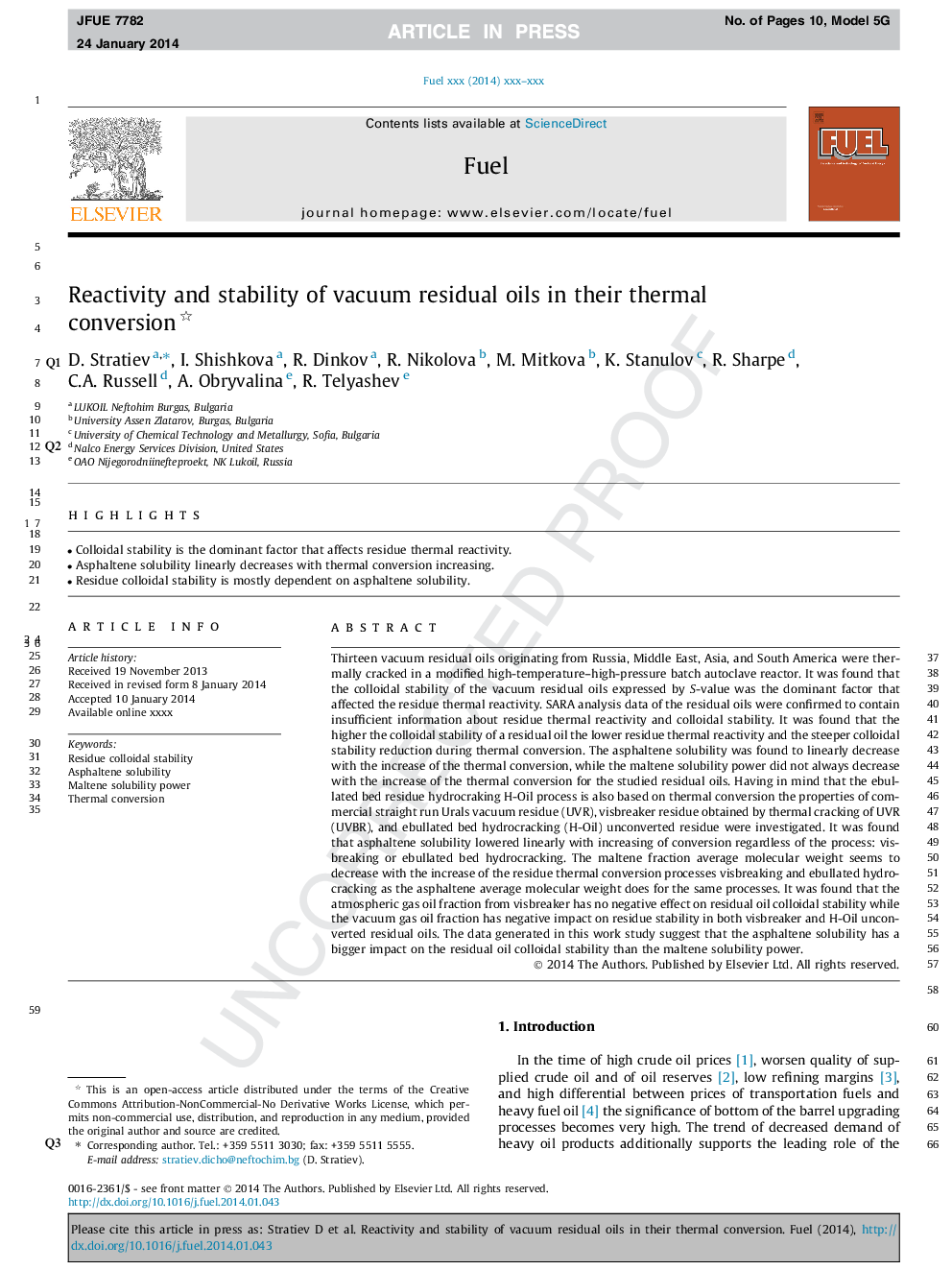| Article ID | Journal | Published Year | Pages | File Type |
|---|---|---|---|---|
| 6638032 | Fuel | 2014 | 10 Pages |
Abstract
Thirteen vacuum residual oils originating from Russia, Middle East, Asia, and South America were thermally cracked in a modified high-temperature-high-pressure batch autoclave reactor. It was found that the colloidal stability of the vacuum residual oils expressed by S-value was the dominant factor that affected the residue thermal reactivity. SARA analysis data of the residual oils were confirmed to contain insufficient information about residue thermal reactivity and colloidal stability. It was found that the higher the colloidal stability of a residual oil the lower residue thermal reactivity and the steeper colloidal stability reduction during thermal conversion. The asphaltene solubility was found to linearly decrease with the increase of the thermal conversion, while the maltene solubility power did not always decrease with the increase of the thermal conversion for the studied residual oils. Having in mind that the ebullated bed residue hydrocraking H-Oil process is also based on thermal conversion the properties of commercial straight run Urals vacuum residue (UVR), visbreaker residue obtained by thermal cracking of UVR (UVBR), and ebullated bed hydrocracking (H-Oil) unconverted residue were investigated. It was found that asphaltene solubility lowered linearly with increasing of conversion regardless of the process: visbreaking or ebullated bed hydrocracking. The maltene fraction average molecular weight seems to decrease with the increase of the residue thermal conversion processes visbreaking and ebullated hydrocracking as the asphaltene average molecular weight does for the same processes. It was found that the atmospheric gas oil fraction from visbreaker has no negative effect on residual oil colloidal stability while the vacuum gas oil fraction has negative impact on residue stability in both visbreaker and H-Oil unconverted residual oils. The data generated in this work study suggest that the asphaltene solubility has a bigger impact on the residual oil colloidal stability than the maltene solubility power.
Keywords
Related Topics
Physical Sciences and Engineering
Chemical Engineering
Chemical Engineering (General)
Authors
D. Stratiev, I. Shishkova, R. Dinkov, R. Nikolova, M. Mitkova, K. Stanulov, R. Sharpe, C.A. Russell, A. Obryvalina, R. Telyashev,
